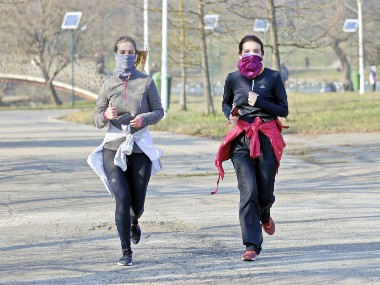There are now over 3.01 million confirmed COVID-19 cases in the world and over 207,500 patients have lost their lives. Boris Johnson, the UK Prime Minister, returned to work today after spending several nights in the ICU suffering from the disease. Here are some other major developments from today. [caption id=“attachment_8279881” align=“alignleft” width=“380”]  Representational image. Image by Mircea Iancu from Pixabay.[/caption]
Various countries loosen lockdown measures
Australia, New Zealand, Iran and Spain and Italy announced that they would ease lockdown measures. Italy has said that manufacturing can resume by the 4th of May, however, schools will not reopen until September. Spain saw fewer than 300 deaths in a day for the first time in weeks on Saturday; children under 14 will now be allowed to go outside to play for the first time since mid-March. Previously, some non-essential workers were allowed to resume work as well. In New Zealand, the courts and Parliament will reopen, and some 400,000 people will return to work. Restaurants will reopen on Tuesday as well. Various US states such as Minnesota, Colorado, Montana also announced they would be lifting restrictions.
Afghanistan to free a large number of prisoners fearing an outbreak
Afghanistan has said that it will release over 22,000 prisoners, out of a total of 36,000, given the threat of COVID-19. So far, just over 1,700 cases have been confirmed, but this is considered a gross undercount. Of these, 172 were confirmed in the last 24 hours, the largest single-day jump seen in the country so far. Returning workers from Iran are considered a health risk, given that Iran has been hit much worse by the pandemic. The war-torn country has limited healthcare facilities and an outbreak could be devastating. According to officials, Afghani prisons are over capacity and freeing prisoners will assist in physical distancing measures.
Chile to introduce ‘immunity passports’
Chile will introduce ‘release certificates’ to citizens who have recovered from COVID-19 so that they can return to work and the country can return to normalcy. The WHO has warned that there is no guarantee that those who recover from the disease cannot be reinfected. More research needs to be conducted on the degree of immunity that is gained after clearing the disease. Critics also say that the certificates could confer a false sense of security and exacerbate outbreaks. Chilean health authorities acknowledged that while full immunity is not guaranteed, it is reasonable to assume that people are immune at least in the short term. Again, there is no evidence to back up this claim.
Preliminary results from Remdesivir clinical trial to be released next week
It has been a topsy-turvy couple of weeks for Remdesivir, the antiviral drug that the WHO had previously dubbed the greatest hope against COVID-19. Earlier in the month, some studies had shown that the drug had improved the outcomes of some of the patients on it. Then, late last week, a draft that was uploaded by mistake on the WHO website showed that the drug failed to deliver for patients who were on it. Gilead, the manufacturer, has since commented saying that those results were based on incomplete data and should not be taken into consideration. Preliminary results of a randomized controlled trial by the National Institutes of Health will be released next week. Over 572 participants are a part of this study, and the findings of the study are eagerly awaited as they may give an indication of the effectiveness of the drug. The finals results of the study will be released mid to late May. For more information, read our article on WHO Solidarity Project to find a treatment for COVID-19. Health articles in Firstpost are written by myUpchar.com, India’s first and biggest resource for verified medical information. At myUpchar, researchers and journalists work with doctors to bring you information on all things health.


)

)
)
)
)
)
)
)
)



